Towards a Recoverist Future: "The Culmination of 14-years' work."
News
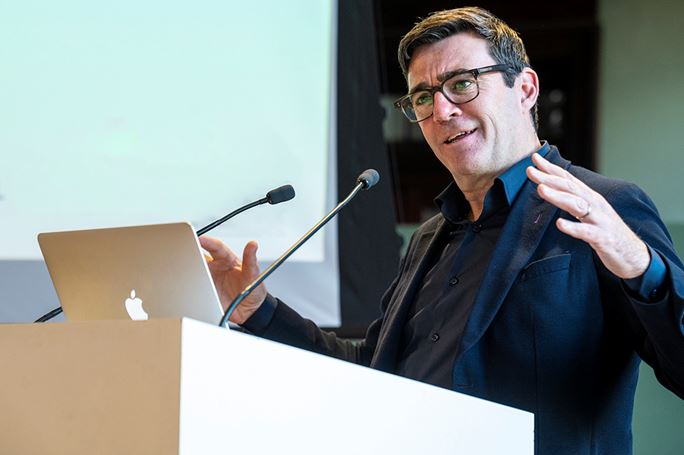
Toward a Recoverist Future...
This blog post was originally published in Performing Recovery.
“The culmination of 14 years’ work.”
This is how Portraits of Recovery‘s Founding Director and CEO Mark Prest described the arts organisation’s Towards a Recoverist Future, to me following the event at the Whitworth Art Gallery on Friday 9th November. Taking place in the gallery’s Grand Hall, over 100 attendees gathered to hear the evidence, promises and possibilities generated by this September’s inaugral Portraits of Recovery (PORe) Recoverist Month arts festival.
Recoverist = recovery + activist
The voices heard and the positions expressed by notable speakers from the cultural, health, academic, government and funding sectors reflected the increasing unity behind the principles of 2014’s Recoverist Manifesto. This document and pioneering social movement originated by Mark and Dr Clive Parkinson is borne out of Manchester, a city famed for social innovations, being the birthplace of the suffrage, trade unions and The Cooperative Society movements.
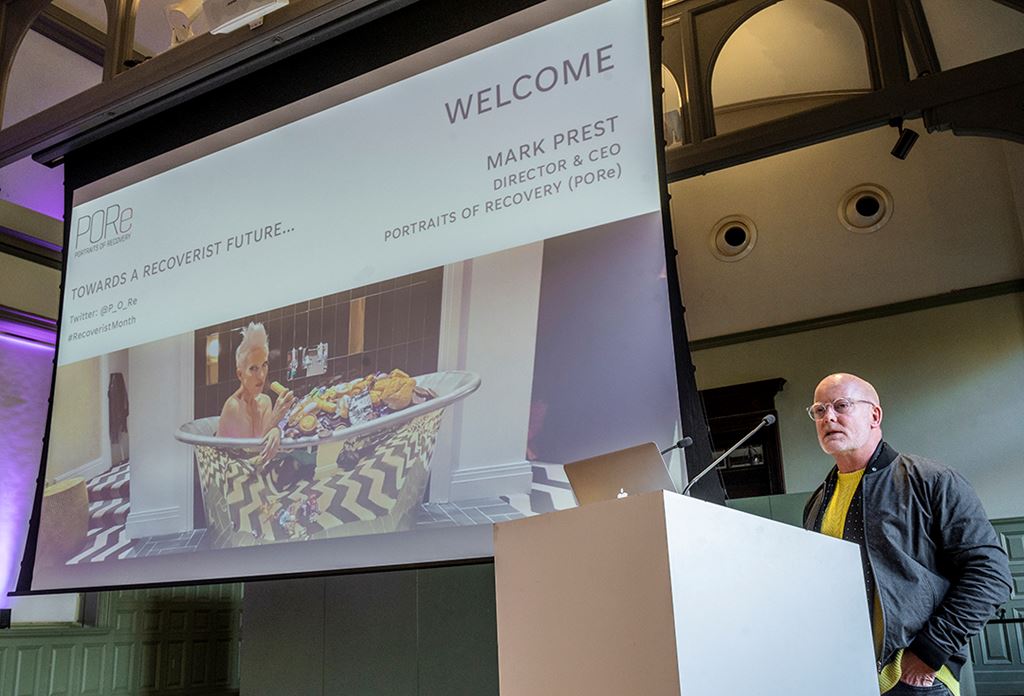
“To create is to make sense of the world”
Clive Parkinson
Opening the event, the Mayor of Greater Manchester Andy Burnham noted how people in recovery gravitate towards cultural activities because of the power in its expressive nature. Dr Clive Parkinson followed with a personal account of how his brother taught him both the value in creative actions and the shaming affect inherent in the medicalisation of addiction. In outlining PORe’s guiding principles, Mark Prest emphasised the necessity of “transformational and life changing art.”
“No compromises … we do this because it is good art“
Dave Moutrey
Describing HOME‘s partnership with PORe, Director and Chief Executive Dave Moutrey stated the primary concern of the cultural hub’s involvement is the high standard of work that is “produced by people who happen to be in recovery”. The Whitworth’s Head of Civic Engagement and Education Ed Watts spoke of the gallery’s conscious move towards embedded collaboration with Recoverist curators. Arts Council England‘s Jen Cleary concluded the day summarizing the potential that culture must “change the narrative for the better.”
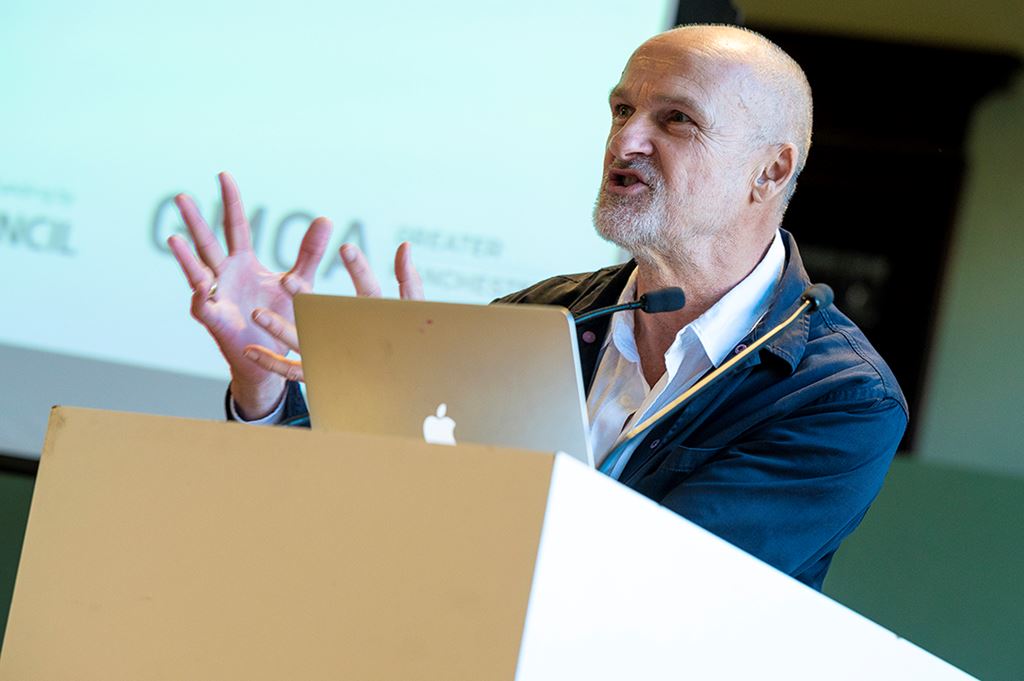
“Giving people choice and control over their own recovery. ”
Julian Guerriero
One question from an audience member raised the issue that a lack of visibility in support for people with addiction issues negates any hopes of recovery. As We Are Survivors founder and CEO Duncan Craig OBE pointed out, in his charity they have to “do the opposite of the conditions of abuse,” chiming well with the recurring problem of combatting the shame and secrecy that surrounds the illness. 12 Step fellowships such as Alcoholics Anonymous work for many, but they are not for everyone. Recovery may seem unobtainable or impossible to local communities when individuals feel trapped in cycles of addiction.
“Medicine alone cannot keep people healthy and happy.”
Julie McCarthy
Creative health is another arena in which Greater Manchester seeks to lead the way. Oldham Council‘s Julian Guerriero and GMCA‘s Marie-Clare Daly and Julie McCarthy expressed the empowerment of cultural interventions. Agency is possible for people in addiction recovery via effective arts practices, contrasting with the deficit approaches posed by policing and harm reduction services. Being “at the forefront of best practice,” Marie-Clare Daly explained how PORe informs local government direction and policy in addressing health inequalities.
“Levels of honesty and sincerity from the participants”
Jez Dolan
In recalling their 2023 Recoverist Month artworks, artists Harold Offeh and Jez Dolan spoke about the openness and engagement they experienced while co-creating with participants in PORe projects. This underlined the appetite met and the nourishment gained when art is brought to the table, but as Mark Prest emphasised, “the work’s got to be high quality.” Drawing on his experiences of being both the former government Culture Secretary and the Health Secretary at different points in his career, Andy Burnham affirmed that effective approaches are about “names not numbers.” He spoke of his hope that Greater Manchester’s night time economy will lead the way in establishing more sober spaces and emphasised that PORe’s and Recoverist principles “should be mainstream.”

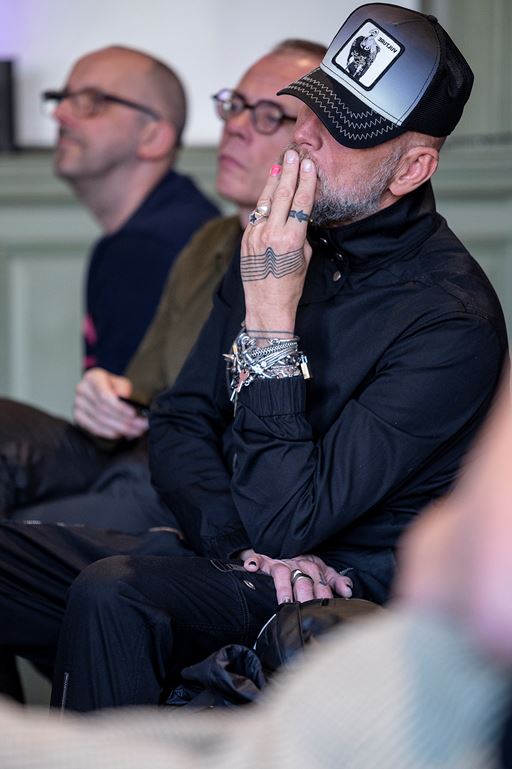
“Let’s make this a movement across the country”
Andy Burnham
Dr Clive Parkinson reframed what the experiences that people with addiction issues have to offer, stating that Recoverists “are assets in society … reclaiming new ways of living.” Expanding on Will Self‘s call that “we need to feel and be felt” in his Recoverist Manifesto introduction, Mark Prest encouraged us to think of “addiction as an emotional illness.” From the many wisdoms and potentialities that the presenters brought to the podium at Towards A Recoverist Future… it will be that phrase that endures in my mind most, as both a person in addiction recovery myself, and as an artist that uses this lived experience in my practice.
“Today is about opening up a conversation”
Mark Prest
What took place in The Whitworth’s Grand Hall last Friday made for an extraordinary afternoon. Yet again, Manchester leads the way on social change. I urge you to sign up to PORe’s mailing list and to look forward to their next Recoverist Month in September 2024. It will be a beacon for what the future will hold – not only for arts by, with and for people in addiction recovery – but also as Andy Burnham said, for “challenging the norms” in mainstream culture and societal values.
Written by Leon Bowes, for Performing Recovery.
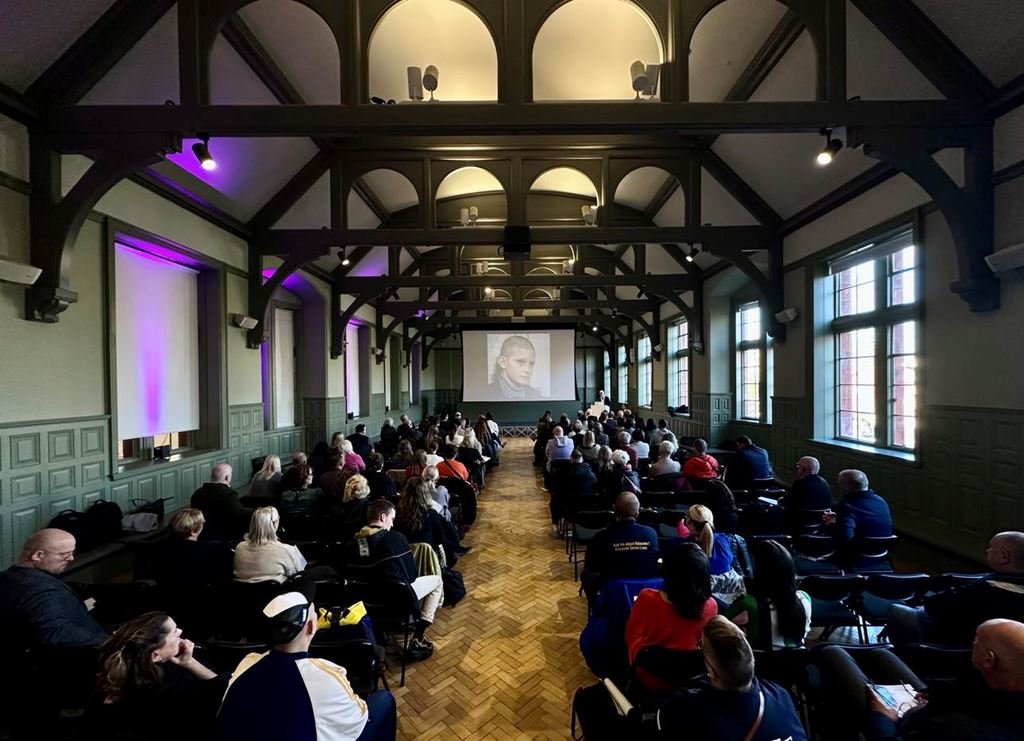
 Menu
Menu